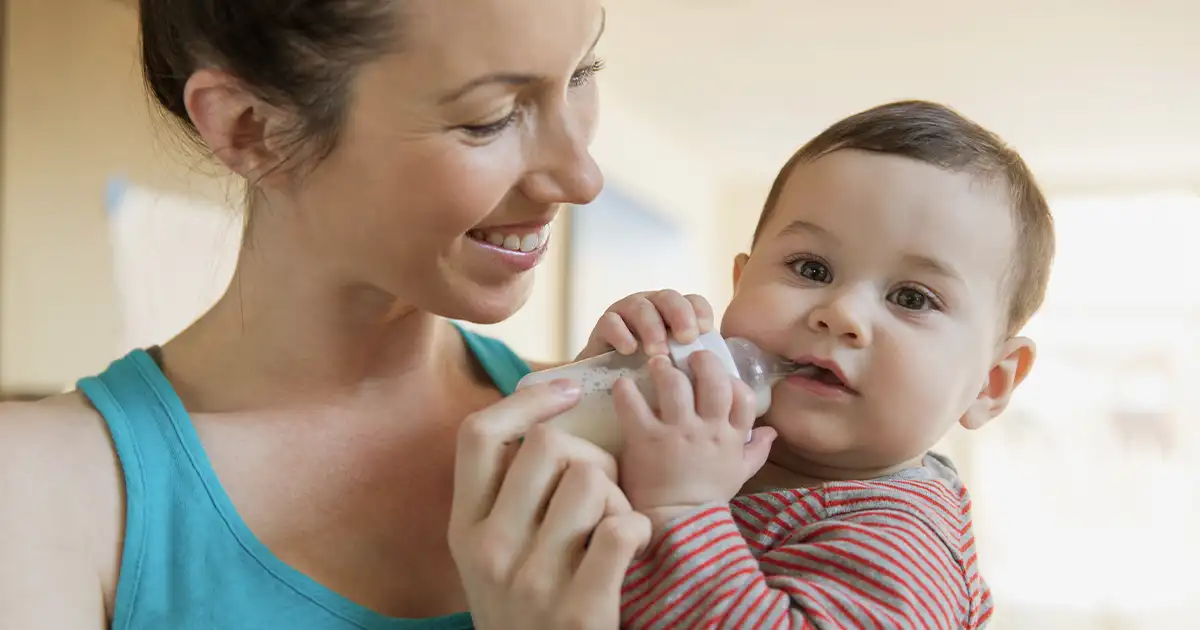As parents, we know how important it is to take good care of our children’s teeth, but did you know that tooth decay can start in babies as young as six months of age? This is sometimes called baby bottle tooth decay, and it occurs when a baby’s teeth are frequently exposed to sugary liquids such as formula, milk, fruit juice, or sweetened water. In this blog post, we will discuss the causes, symptoms, prevention, and treatment of baby bottle tooth decay, so you can help your little one maintain a healthy and beautiful smile.
Causes of Baby Bottle Tooth Decay
Baby bottle tooth decay occurs when bacteria in the mouth feed on sugars from liquids, producing acids that can erode the teeth. The primary cause of baby bottle tooth decay is the frequent and prolonged exposure to sugary drinks. This often happens when a child falls asleep while drinking a bottle of milk or juice, which gives the bacteria in the mouth more time to produce damaging acids. Additionally, babies who are allowed to sip on sugary drinks throughout the day are also at risk of baby bottle tooth decay.
Symptoms of Baby Bottle Tooth Decay
The early signs of baby bottle tooth decay include white spots on the teeth, which may develop into brown spots or cavities over time. You may also notice bad breath, inflamed gums, and a reluctance to eat or drink. In severe cases, baby bottle tooth decay can cause pain, swelling, and infection, which can lead to tooth loss and other serious health problems.
Prevention of Baby Bottle Tooth Decay
The best way to prevent baby bottle tooth decay is to avoid giving your infant sugary drinks, especially before bedtime. Instead, offer them plain water or breast milk. If you do give your child a bottle of milk or juice, be sure to hold them while they drink it and take the bottle away as soon as they’re finished. Avoid using pacifiers dipped in sugar or honey, and don’t let your baby fall asleep with a bottle in their mouth. Lastly, it’s important to establish good dental habits early on, such as wiping your baby’s gums with a clean wet cloth or a baby toothbrush.
Treatment of Baby Bottle Tooth Decay
If your child has already developed baby bottle tooth decay, it’s important to seek dental treatment as soon as possible. In some cases, the decayed tooth may need to be filled or extracted. Your dentist may also recommend fluoride treatments, sealants, or other preventive measures to protect your child’s teeth from further decay.
Elite Pediatric Dentistry is Here to Help!
If you’re concerned about your child’s teeth, be sure to speak with your pediatric dentist who can recommend the best ways to prevent and treat baby bottle tooth decay. Is it time for your child’s first dental visit? The American Academy of Pediatric Dentistry recommends: “In order to prevent dental problems, your child should see a pediatric dentist when the first tooth appears, or no later than his/her first birthday.” Every visit to Elite Pediatric Dentistry, is a great opportunity to ask questions about your child’s oral health – and don’t worry if you’re not sure what to ask, oral hygiene education is something that we cover with you and your child during every appointment.


